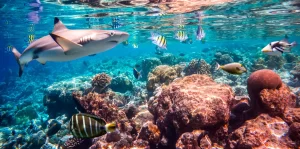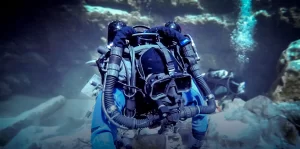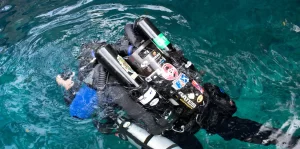Planning a SCUBA diving trip can be fun and stressful all at once. There are a variety of factors to consider to ensure you get the most out of your diving experience.
1. Become certified
Although SCUBA diving is perceived as a recreational activity, it comes with very real risk. To ensure your safety, it is important that you complete a diving certification class before your first dive. The Professional Association of Diving Instructors (PADI) and the National Association of Underwater Instructors (NAUI) both offer certification classes. When–and only when–you pass the course, you can legally and safely SCUBA dive.
Additionally, you can only become certified when you complete the class and the required dive under the guidance of a certified instructor. Any attempt to learn how to SCUBA dive on your own, especially in open water, is extremely dangerous and absolutely not permissible.
2. Diving gear
Whether you plan to buy your own gear or rent it, be sure to include the following items.
- wet suit
- fins
- diving mask
If purchasing your own gear is not an option, many dive shops will allow you to rent the gear by the day. Because gear items are very popular, it is a good idea to rent your diving gear in advance. Renting in advance ensures everything you need is available and ready to use on the day of your dive. However, it also ensures you can stop by and test out the fit prior to the day of the dive.
However, if you are planning a trip that requires a flight and are considering bringing your own gear, you should compare the cost of overweight fees versus renting. If you decide to bring your gear, for instance, you should consider purchasing a lightweight buoyancy control compensator (BCD) and regulator designed specifically for travel overseas.
3. Destination
There are a variety of beautiful SCUBA diving destinations to choose, and so many choices can seem overwhelming. However, starting with the type of dive you are interested in can help reduce the list considerably. Some popular diving experiences include exploring coral reefs, observing marine life, and visiting wrecks. Each of these types of dives will be located in a different area of the world, which, of course, is another factor to consider. For instance, those interested in coral reefs may decide to dive Milne Bay in Papua New Guinea or perhaps Balicasag in the Philippines.
If you or anyone in your group is new to SCUBA diving, you should avoid advanced sites as they generally are comprised of conditions that can be dangerous for individuals new to diving. For instance, the Galapagos Islands, though extraordinarily exciting, experience surges and currents that can be unpredictable.
Finally, budget is something to consider because many destinations include an overseas flight as well as vaccination and visa requirements, all of which may make some destinations more difficult than others. Fortunately, many hotels and resorts located on the beach offer SCUBA diving packages. If you are new to diving, this can be a very fun and safe way to start.
4. Memories
SCUBA diving exposes you to a world like no other. You will likely want to share your experiences with your friends and families. Telling them about it will simply not suffice. As such, you should bring an underwater or waterproof camera to record all of the natural and astonishing sites.
5. Itinerary
Because you will likely dive in more than one spot in one day, it is important to be organized. Your itinerary should include such things as arrival and departure times for each location, food provisions as you will be out on the water for the day, and any transportation needs, such as boat rentals or car rentals.




